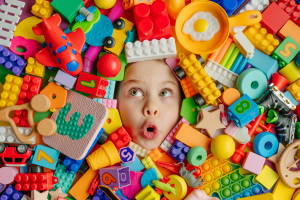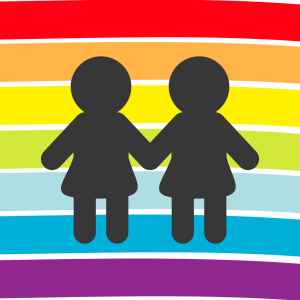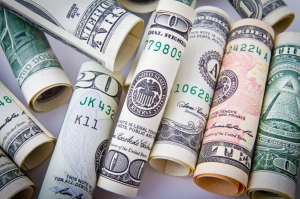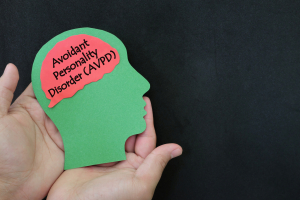Install the app
You are using an out of date browser. It may not display this or other websites correctly.
You should upgrade or use an alternative browser.
You should upgrade or use an alternative browser.
The biological explanation for homosexuality!
- Thread starter iammeg
- Start date
This is actually one of the most convoluted questions in evolutionary biology, and I’ll try to answer it based on what we know about evolution, and data biologists have gathered over the last few decades. But before proceeding, I’d like to draw your attention to a few facts about evolution that will aid in understanding my point:

- Evolution is not some sort of conscious process that has a “goal” and is capable of making “decisions.” Instead, one should think of it as an algorithm that does what it’s best at—optimization with constraints, such as the availability of resources and environmental pressures. As a consequence, nature is full of quick and dirty workarounds, *cough* auditory ossicles *cough* [1]. (In a strict sense, calling evolution “optimization” would be wrong since it tends to converge to some local optimum, meaning that most often the result isn’t the best possible one; it’s only “as good as we can get,” but often good enough to serve its purpose.)
- The fittest organisms aren’t necessarily the largest, baddest, healthiest, or strongest, they’re the ones that excel at surviving and spreading their genes in the particular environment they happen to be living in. Cunning and luck often help, too.
- Evolution has no memory. It doesn’t “remember” what kind of solution it “gave” to a particular problem it had stumbled upon earlier, nor does it learn from past mistakes; as a result, it has to reinvent the wheel each time instead of improving on a past solution.
- Evolution doesn’t work on a “the more the merrier” basis: it’s fractally incorrect to assert that the more reproducing individuals there are, the better the survival chances of the population will be. As a matter of fact, this is rarely the case. Resources are relatively scant, and their growth rate is generally much slower than the reproduction rate of the organisms whose survival depends on them. Besides, animals don’t willingly give their own resources away out of sheer altruism; in reality, they fight tooth and nail to take possession of others’ resources. In order to yield the most offspring in the long term, it’s, therefore, better if only a certain percentage of the population reproduces.
Homosexuality is a psychological fact, not a mere biological fact - nothing in the Homo Sapiens is merely biological because we are always mediated by signifiers, which change even physiological dispositions by the way: that is what conversive hysterical symptoms taught Freud (but would never teach an idiot).
In time: heterosexuality is also a psychological fact, not a biological one. There is no biological destination to sexuality in humans, nor biological causality - because, surprise!
In time: heterosexuality is also a psychological fact, not a biological one. There is no biological destination to sexuality in humans, nor biological causality - because, surprise!
I think that Homosexuality can increase the quality of childcare for siblings and nephews and nieces, but that it can also decrease Intrasexual conflict.
Let's say you are a straight man, and you have a gay brother. You are looking for a woman, but you remember that almost every single man is too. So you are in competition with other men to attract a woman to have offspring with. So, you go around and start looking, but then you see a woman that you are interested in talking to and having a good time with another man. Discouraged, you go home…only to find out that your brother is introducing to you their gay boyfriend, the same man that was talking to the woman. So, you go back to the woman and try to capture her interest. Rejected or not by the woman. You get to know your gay brother-in-law and socialize with him, learning that “hey, maybe I shouldn’t see men as my competition to get a partner, maybe they can help me pass genes along?”
So eventually you have a partner that has offspring with you. Having kids is a lot of work, on you, your partner, your moms, and dads, etc. You need all the help you can get. Wait, your straight sisters and brothers can’t help they have kids too and also need help. However, your gay brothers and sisters can help since they don’t have offspring of their own and can help pass along the family genes to the next generation, which includes sexual orientation.
Let's say you are a straight man, and you have a gay brother. You are looking for a woman, but you remember that almost every single man is too. So you are in competition with other men to attract a woman to have offspring with. So, you go around and start looking, but then you see a woman that you are interested in talking to and having a good time with another man. Discouraged, you go home…only to find out that your brother is introducing to you their gay boyfriend, the same man that was talking to the woman. So, you go back to the woman and try to capture her interest. Rejected or not by the woman. You get to know your gay brother-in-law and socialize with him, learning that “hey, maybe I shouldn’t see men as my competition to get a partner, maybe they can help me pass genes along?”
So eventually you have a partner that has offspring with you. Having kids is a lot of work, on you, your partner, your moms, and dads, etc. You need all the help you can get. Wait, your straight sisters and brothers can’t help they have kids too and also need help. However, your gay brothers and sisters can help since they don’t have offspring of their own and can help pass along the family genes to the next generation, which includes sexual orientation.
If one looks at Bonobo Chimps, they use sex to settle things like conflict in their society—including same-sex encounters. For humans (like the bonobo) sex has many advantages outside of making new, little humans. Human sexuality, like many other things, falls on a spectrum with many variations so being naturally bi-sexual in some way is advantageous as it allows for the benefits and bonding of sex between any two people who choose, and it also allows sexual expression that won’t result in children when they are not wanted (such as during a lean time).
Imagine there was a gene sequence that made you significantly more sexually aroused at the smell of male pheromones. This would have the effect of increasing the number of offspring produced by females with the gene while increasing the chance that males with the gene develop homosexual urges. Homosexuality itself doesn't propagate the gene, but its presence in females does.
I read a study (code for I can't reference it) that the maternal aunts of homosexual men have increased fecundity (more offspring). This is what would be expected if such a genetic sequence existed and it would show how such a sequence survives over time. Of course, it couldn't spread through the entire population, but genetics is more complicated than we learned in year 10 science.
I read a study (code for I can't reference it) that the maternal aunts of homosexual men have increased fecundity (more offspring). This is what would be expected if such a genetic sequence existed and it would show how such a sequence survives over time. Of course, it couldn't spread through the entire population, but genetics is more complicated than we learned in year 10 science.







